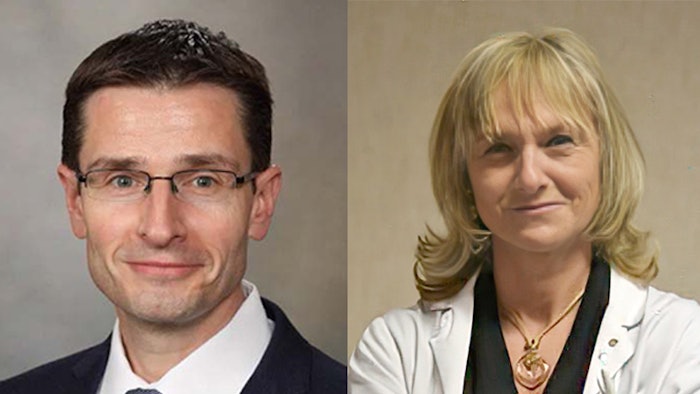The prevention principle in cardio-oncology
Cardio-oncology treatment must prevent issues before they start

When it comes to cardiovascular disease in cancer, as with many other diseases, prevention is critical.
Joerg Herrmann, MD, and Daniela Cardinale, MD, PhD, FESC, will lead a discussion of prevention and all things related to cardio-oncology in a session titled, Cardio-Oncology, ‘Onco-Cardiology,’ and Everything in Between: What Cardiologists Should Know About Cardiovascular Disease in Cancer.
Dr. Herrmann, a cardiologist at the Mayo Clinic in Rochester, Minnesota, said that prevention can be important especially in under-resourced populations.
“Disparities in cardio-oncology are just starting to be studied, and the AHA is supporting a strategically focused network on this very topic,” he said. “It is much more cost effective to prevent a disease from occurring than treating it after its onset. The prevention principle applies to multiple areas of cardiology and oncology.”
Dr. Cardinale, director of the cardio-oncology unit at the European Institute of Oncology in Milan, Italy, said that prevention must be 360 degrees.
“Prevention can be performed at different stages of the cancer patient’s treatment pathway, starting with the correction of cardiovascular risk factors and the optimization of any pre-existing heart disease,” she said. “After that, in patients at a higher risk of cardiotoxicity, primary prevention can be considered. The next step is a strict and continuous surveillance using biomarkers that can identify cardiotoxicity at the pre-clinical level, so that early intervention can be made with a cardioprotective strategy to prevent the development of clinical cardiotoxicity, or at least reduce its magnitude.”
One area that cardiologists need to be aware of is the diverse spectrum of drug safety (or toxicity). This includes cardiomyopathy, vascular disease and arrhythmias. When it comes to arrhythmias, one has to mention the buzzword of QTc prolongation, said Dr. Herrmann.
“Multiple drugs have been and are being tested for this measure. It is relatively easy to obtain measure and is of clinical significance (predisposition to fatal arrhthmias),” he said. “A number of the newer generation of drugs called tyrosine kinase inhibitors can prolong the QT interval, and in combination with electrolyte abnormalities due to vomiting and diarrhea as well as in combination with other drugs in cancer patients, can become really problematic.”
Dr. Cardinale said managing possible interactions between antiarrhythmic drugs and anticoagulant drugs with some new and even some older drugs may be tricky.
“The most frequent and feared form of cardiotoxicity remains cardiac dysfunction,” she said. “Other forms of toxicity include vascular toxicity resulting in hypertension, acute coronary syndromes and thrombo-embolic episodes.”
A key tool in cardiotoxicity assessment is cardiac imaging, and artificial intelligence has started to make inroads in that area. Dr. Cardinale said it is still too early to say how much of an impact it will have.
“Artificial intelligence seems to be able to make a great contribution to the clinician at different levels,” she said. “For now, however, it is just a great potential. We need to understand the correct and most effective application to our clinical practice.”











